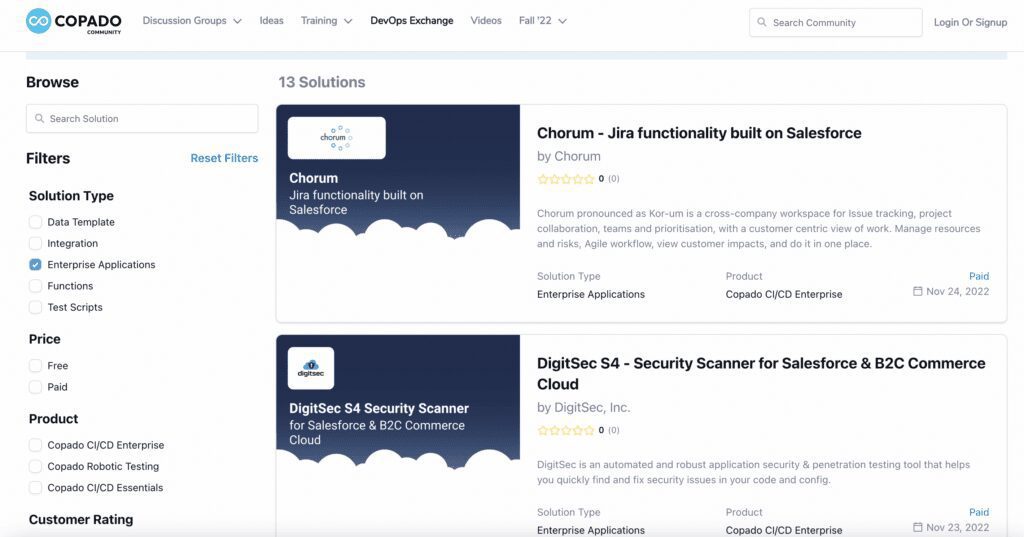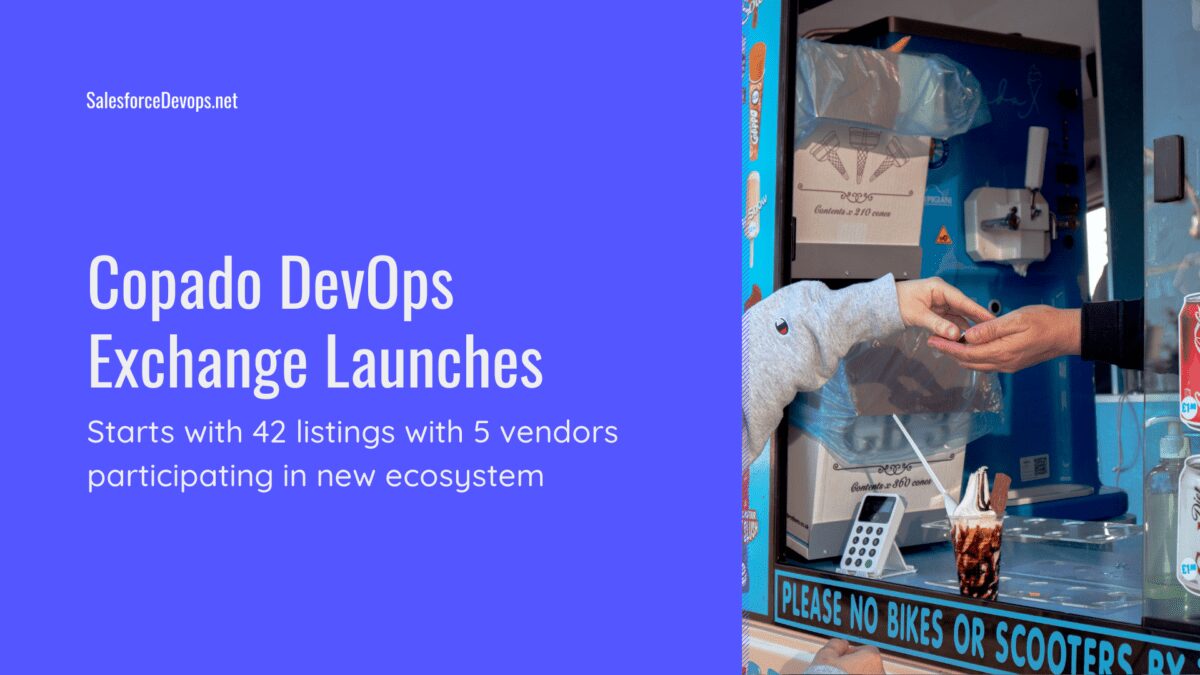Copado DevOps Exchange Launches
Copado, a leading SaaS devops platform vendor based in Chicago, today formally launched DevOps Exchange. “Just as AppExchange became the leading marketplace for Salesforce apps, Copado is advancing the DevOps market for enterprise SaaS by offering an extensible platform supported by solutions from our partners and community members,” said David Brooks, Senior Vice President of Product Strategy at Copado, in a press release. The Copado DevOps exchange is immediately available and may be accessed with this link.
What is DevOps Exchange?
Copado DevOps Exchange is a new marketplace for software publishers and Copado customers. It works very much like the Salesforce AppExchange, where vendors publish product listings in various categories. In some cases, installing the package works just like Salesforce AppExchange. This makes the entire process entirely familiar to Salesforce AppExchange users.

Just about anyone can publish on Copado DevOps Exchange. That includes individual community members who want to share open-source work using the MIT license. Businesses and organizations may publish any number of free and paid solutions. You can get more information here.
As of today, Copado DevOps Exchange has 42 listings, most of which are published by Copado itself. The listings cover several functions, including testing facilities, external application integrations, and enhanced support of advanced Copado features. Examples include Copado Monitoring Center and Copado Connect (ALM).
At launch, five vendors besides Copado have listings. The initial DevOps Exchange vendors are Centro, Chorum, Clayton, DigitSec, and Elements.Cloud. The services provided by these vendors include external program integrations, cybersecurity, and application lifecycle management.
Follow The Leader
Copado has made a business out of emulating Salesforce, and it seems to be working. From the start, Copado’s customer success strategy has closely aligned with what customers got from Salesforce itself. And a great example of Copado copying the leader is the learning site, which closely emulates Trailhead. Now, with DevOps Exchange, Copado is putting forward the partner ecosystem just like how Salesforce does it.
Salesforce knows how to build a partner ecosystem. And several of the executives who built it, including Mr. Brooks, now work at Copado. So, Copado seems to understand the risks associated with launching a new marketplace. Like when Salesforce introduced the AppExchange in 2005, Copado is not charging admission, advertising, or sales commissions for companies who participate in the exchange.
I had a chance to discuss DevOps Exchange with Mr. Brooks earlier this week, and I asked where to expect to see growth in the exchange. Naturally, he hopes for DevOps Exchange to be a place for new companies to show their wares, but “we expect to see solutions from the system integrators to appear in the future.”
Makes Copado More of a Real Platform
When a team dives into devops, they worry about getting locked into a particular vendor. That worry is borne out if a vendor is closed and doesn’t have a way to integrate other applications into a developer platform. This announcement gives Copado customers some assurance that it does not wish to be seen as a closed environment, because it has opened the gates to welcome in as many partners as possible.
The Copado DevOps Exchange is a program which makes the Copado SaaS devops platform more extensible. And it provides a solid business model for fostering new software companies to share in Copado’s success. But many B2B exchanges languish if they don’t grow or have utility. That is a major challenge for Copado moving forward. Let’s hope they have the patience and resources to make Copado DevOps Exchange a vital part of the SaaS ecosystem.






